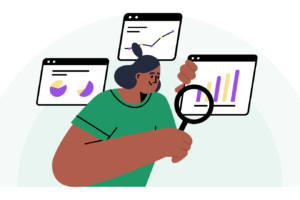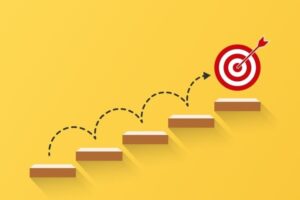
Finding Sustainable Funding for Early Learning: How Khan Academy Kids Can Help
We know many district leaders are navigating a difficult moment. With ESSER funds ending and budgets stretched thin, you’re still working to meet ambitious literacy and math goals for your youngest learners. It can feel like a balancing act—supporting students and teachers while keeping costs predictable for the long term.
Affordable Early Learning Programs That Fit Any Budget
And as new features were introduced to support schools and district-level implementation, we were committed to ensuring cost would not be a burden for our partners. At $5 per student, Khan Academy Kids can fit into existing budgets, helping districts avoid the disruption of “start-stop” programs. That means students and teachers get consistent support year after year.
As federal funding shifts, schools need programs that won’t disappear when grants expire. That’s why we designed Khan Academy Kids to be both affordable and sustainable. The mobile app is, and will always be, available at no cost to both families and teachers, with no in-app advertising.

For just $5 per student, districts receive:
- A web-based teacher dashboard accessible via laptop computer with insights to guide instruction
- District-level reporting to track engagement
- Family resources to support learning at home
- Professional learning and teacher support at no extra cost
Our goal is simple: to be a partner you can count on.
Funding Sources for Early Literacy and Math Programs
Here are some of the most common ways schools and districts are making Khan Academy Kids part of their plan:
- Title I – Many schools use Title I funds to support supplemental academic programs. Khan Academy Kids builds strong early literacy and math foundations, especially for students who need extra support.
- Title II – Because a Khan Academy Kids Partnership includes professional learning, districts can use Title II funds, focusing on the included professional learning and teacher effectiveness outcomes that come through partnership.
- Title III – For English learners, Title III can support programs that strengthen vocabulary and language development. Khan Academy Kids offers language-rich activities that help students build confidence.
- Title IV, Part A – These grants give schools flexibility to provide well-rounded educational opportunities. With literacy, math, and executive functioning activities, Khan Academy Kids supports the whole child.
- State Literacy Initiatives – Many states are investing in early literacy aligned to the science of reading. Khan Academy Kids helps districts align with these benchmarks in a cost-effective way.
- Local Budgets – Because the cost is so low, some districts are able to fund Khan Academy Kids directly from curriculum, early childhood, or technology budgets.
- Philanthropy & Local Foundations – Some districts partner with local education foundations or nonprofits to fund enrichment or supplemental programs.
- Community & Business Partnerships – Financial support from your school’s Parent Teacher Association (PTA) or local businesses, especially for early learning and family engagement.

Learn how Khan Academy Kids can fit into your district’s foundational literacy and math strategy >>
How Schools Use Federal & State Grants for Early Learning
- Start Inside Your School/District
- Ask your curriculum director if there are discretionary funds for digital learning, early literacy, or supplemental curriculum. Many schools have small budgets for classroom innovation.
- Check with your Title I coordinator (if you’re in a Title I school). Title I funds often support supplemental reading and math programs.
- Professional development budgets (Title II) may also apply, since Khan Kids includes free PD.
- State Department of Education Websites
Most states maintain pages for literacy initiatives, early learning, or classroom grants.Examples:
- “Literacy Grants” or “Early Childhood Education” sections on your state DOE site.
- Some states (e.g., Michigan, Kentucky, Colorado) have dedicated grant portals where teachers can apply directly.
- Federal and State Literacy Grants
- Education Grant Directories
- Grants.gov → Main federal portal (search “literacy” or “early childhood”).
- Foundation Directory Online (Candid.org) → Many education foundations post grants here.
- GetEdFunding.com (from Corwin) → Free searchable database of education grants.
- Local & Community Foundations
- United Way often funds early childhood development, early literacy, and family engagement.
- Local education foundations (usually connected to school districts) often provide mini-grants teachers can apply for ($500–$2,000 range).
- Community foundations in your region (search “[Your City] community foundation education grants”).
- Grants and Microgrants for Teachers
If you just need funding for a smaller classroom pilot:- DonorsChoose.org — You can set up a project for Khan Academy Kids licenses. Many donors (and even corporations) sponsor literacy-focused projects.
- NEA Foundation Grants — The National Education Association offers grants for instructional materials and PD.
- Fund for Teachers — Supports innovative teaching projects, including classroom resources.
Your work is about giving students the best possible start—and we want to make that work easier, not harder. By keeping costs predictable and including professional learning, Khan Academy Kids is designed to be a steady partner, even as funding shifts.
If you’d like to explore how Khan Academy Kids could fit into your district’s funding plan, we’d be glad to talk with you.
Source link



